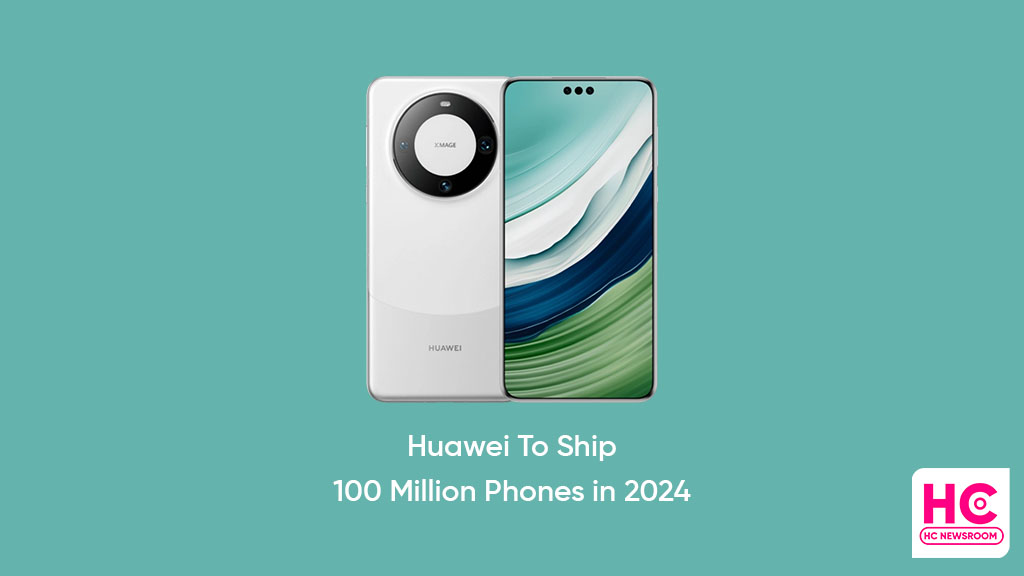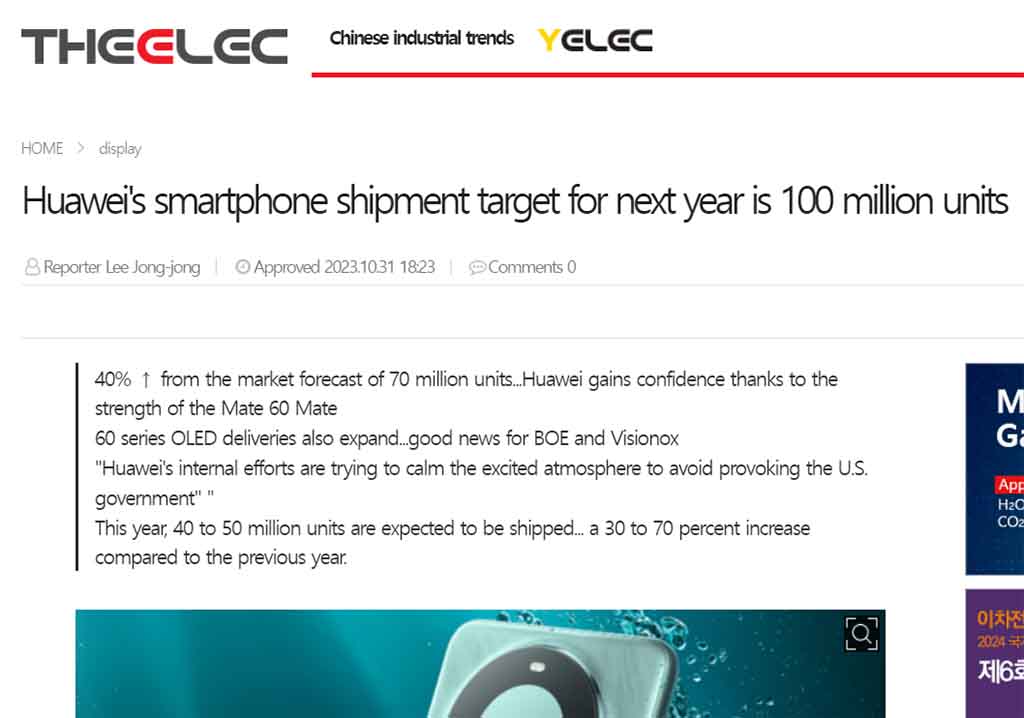Huawei
Huawei could sell 100 million smartphones in 2024, up 40% from the past forecast

Huawei could ship over 100 million smartphones in 2024. This is about a 40% increase in the forecast of Huawei’s next year smartphone business, according to a report from Korean media, TheLec.
Industry sources said that Huawei is preparing to ship at least 100 million smartphone units next year. As previously, several market research firms have predicted that Huawei will ship about 60-70 million units in 2024 and the latest forecast is about 40% more than this.
The report credits this rapidly growing aim to the Huawei Mate 60 series and its success among consumers. It’s mentioned that the sales of the Mate 60 series filled confidence in the Chinese tech maker to expand aggressively in the market.
Back in 2019, the US banned Huawei from purchasing important equipment to build new smartphones. At that time, Huawei shipped about 240 million units of smartphones. In the following two years, Huawei’s shipments declined to the lowest of 30 million in 2022.
This year, began its shipment forecast with 30 million units, and later on the company jumped to 40 million. The report suggests that the continued sales of Mate 60 could sum up to 20 million by the end of 2023. This could lead the overall smartphone shipment for this year between 40-50 million smartphones, which is also 30-70% higher than in 2022.

OLED Supply:
The popularity of the Huawei Mate 60 series has brought a boom for OLED panel suppliers. All of the Mate 60 series models are equipped with OLED displays and supplied by China’s BOE and Visionox. Both of these suppliers are now increasing the prices of the OLED panel with a new trend in demand.
Meanwhile, the OLED application rate of other Chinese phone makers including Xiaomi, Oppo, and Vivo was low for this quarter and the panel makers sold OLED panels close to the manufacturing cost.
Recently, the prices of OLED panels climbed up to $4 to $5 per unit, which could also drop by $1 to $2 by the end of this peak season. Still, it will be $2 to $3 higher than the past low price.
The analyst believes that the change in price occurred after the high application rate of Huawei’s smartphones and Chinese panel companies also have a limited supply to sell OLED at a low price. Therefore, rising prices would help them to overcome supply chain barriers.






